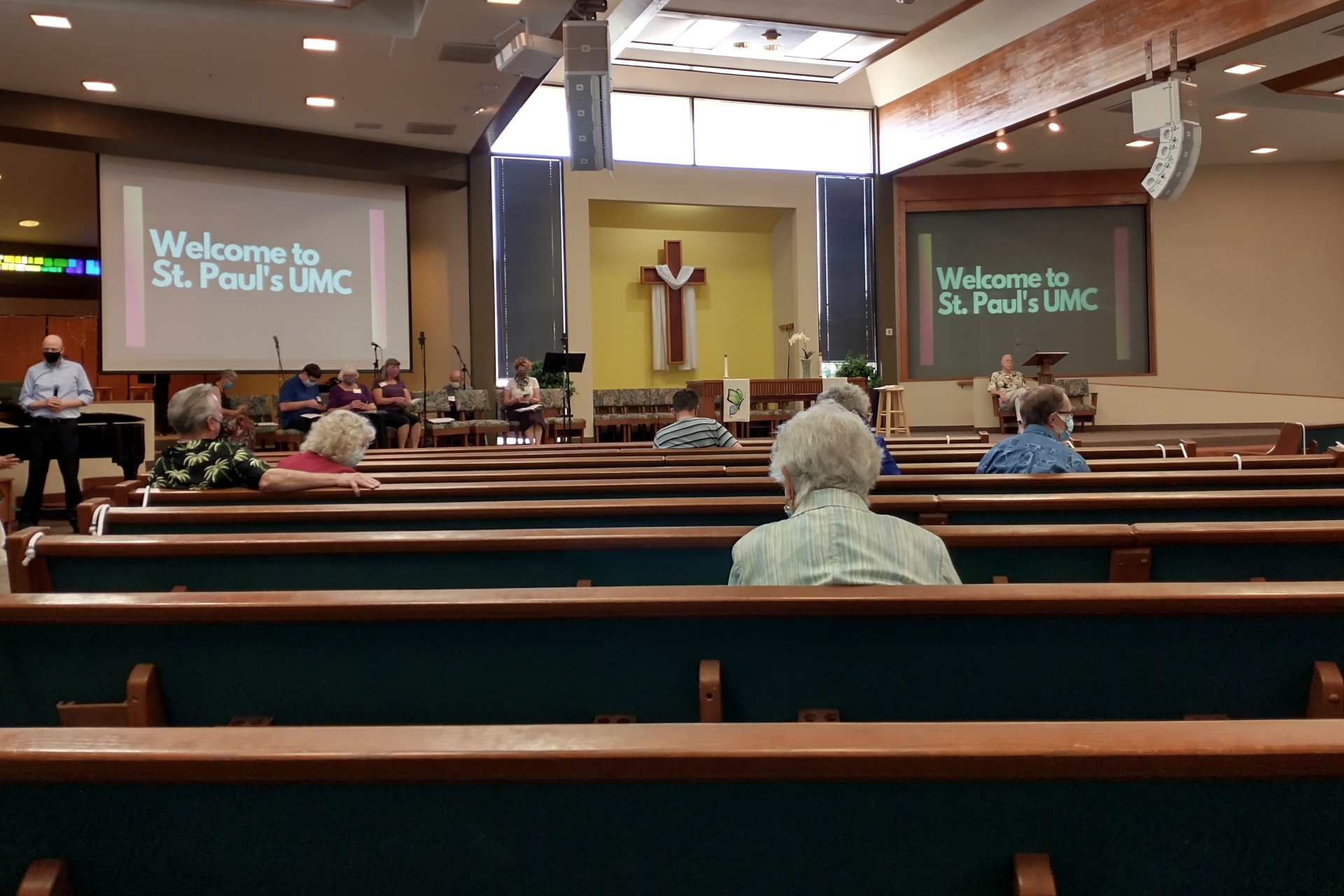You know that the church is more than a building. No doubt, in your time, you’ve seen the children’s pastor, sitting up front, interlocking their fingers and saying, “Here is the church” – index fingers up in a triangle – “here is the steeple” – opening thumbs – “open the doors” – interlocked fingers wiggling – “and see all the people.” Or you’ve joined together across generations singing the old hymn, “I am the church, you are the church, we are the church together.” Or perhaps you know the meaning of the church because you’ve taken part in the most proverbial of all Methodist Church activities – you’ve brought a covered dish to a potluck! This church is, always has been, and should always be about the gathering of people seeking to know and grow in love for God and neighbor.
We truly are the church, together, and though some orders and vocations for church leadership developed early on in Christian history, the impetus for any congregation’s health and vitality has always been with its laity. The individuals who gather together to form and live as a faith community have always taken upon themselves some degree of responsibility for one another. St. Paul made tents while he helped form Christian communities during the time of the Apostles, laity gathered together to create the earliest Methodist societies in America and then rallied together to sustain them through the American Revolution when all but one clergy left the country*1, and laity are the core of any church’s leadership and ministry. Even the largest churches with multiple staff members still empower their members to be active in ministry with and to one another, after the example of the earliest church.
Sunday, October 17th is noted as “Laity Sunday” by our United Methodist denomination and some others. While we may not be marking the day with significant effort in our worship that particular morning, it is worth taking a moment to share and remember how important we are to one another; how integral lay leadership is to the health of any local congregation.
After mentioning the giftedness of the Holy Spirit to some that they might be apostles, prophets, evangelists, pastors, and teachers, the Apostle Paul goes on to share the purpose for such giftedness. Some are called into vocational ministry
“to equip God’s people for the work of serving and building up the body of Christ until we all reach the unity of faith and knowledge of God’s Son. God’s goal is for us to become mature adults – to be fully grown, measured by the standard of the fullness of Christ.”
-Ephesians 4:12-13, Common English Bible
While some may be “set apart” for ministry, they are set apart to guide, inspire, nurture, and lead all people to love, serve, and build up others after the example of Jesus Christ. In the end, we are the church, together.
St. Paul’s would not be what it is in mission to our community and the world were it not for the laity who laid foundations, established ministries, and continually work to build a house of God leading and motivating us toward maturity in Christ and perfection in love. In our modern United Methodist Churches, laity are still the backbone for our administration and ministries.
We are the church, together, in administering the congregation’s affairs. Lay members serve in a variety of ways to guide the operations and success of our local church. Whereas many modern non-profits have a single board of directors overseeing the operations of their organization, our United Methodist Churches have for decades split the administrative leadership of congregations between four committees during any given year:
- The Church Council (sometimes called an Administrative Board) is responsible for keeping the church focused on its mission and vision, pursuing goals, and both encouraging and holding accountable administrative and ministry leaders.
- The Finance Committee is responsible for providing guidance and accountability to the church’s stewardship of financial resources, ensuring that such use is aligned with the mission and vision, and guiding the education and commitment of members’ financial stewardship.
- The Trustees Committee is responsible for providing guidance and accountability to the church’s stewardship of physical resources, ensuring that physical buildings are maintained in such a way as to be effectively used to pursue the church’s mission.
- The Staff Parish Relations Committee is equivalent to an organization’s Human Resources department, and provides guidance and accountability to the church’s stewardship of personnel resources.
And we are the church, together, in mission, too! Laity of a local congregation are the foundation and bedrock of any ministries that church might do, serving in roles as varied as parking lot attendant to Sunday school teacher to gardener to worship leader. While we are grateful to have pastors and church staff to lead us, in the end our ministries are rooted in the passion and dedication of laity who give their time and talent to serve Christ.
Laity Sunday providentially falls in the period of time when we are beginning to discern who might be in leadership in the new year. A small group of church members will gather in prayer and discussion to identify who we might invite to serve in God’s name in the next calendar year. Even so, there will still be much to be done, and we hope and pray you will find your place in helping St. Paul’s to be a “generous community following Jesus for the good of the world.”
Footnotes
*1 The Rev. Francis Asbury was the only American Methodist clergy who remained and stayed active during the Revolution, but even he had to go into hiding for a time because others considered him to be a loyalist to the English crown. Asbury’s story is actually quite compelling, and American and British Methodists are in the midst of marking the 250th anniversary of his travels from England to America. Check out this link for more information about the commemorations.
